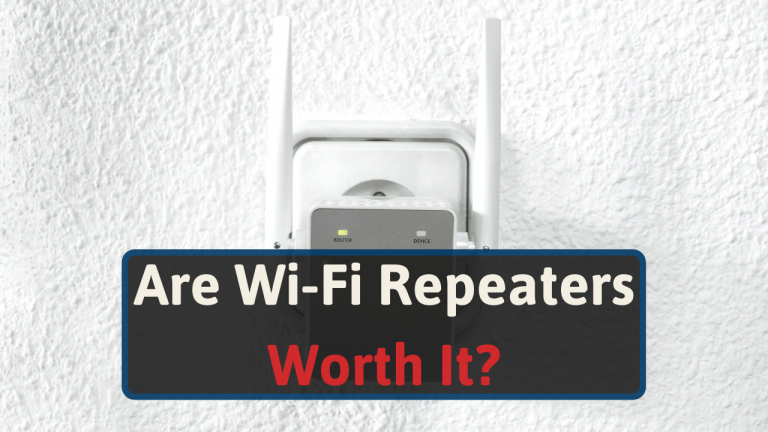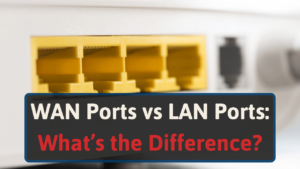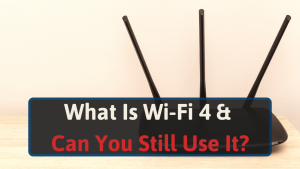As a home networking enthusiast, I’ll explain all the pros and cons of Wi-Fi repeaters.
And I’ll introduce some alternative options for improving your Wi-Fi coverage area.
Let’s dive in.
Are Wi-Fi Repeaters Worth It?
Wi-Fi repeaters are worth it for many situations, but not all. Suppose you have Wi-Fi dead spots in your home. In that case, a Wi-Fi repeater is a great solution to bring Wi-Fi to the area.
For example, if you have a poor Wi-Fi signal in your basement with your router on the main floor, a repeater can bridge the gap.
Repeaters wirelessly connect to your router. That means there is no need for running Ethernet or coaxial to your hard-to-reach area.
That said, most newer repeaters will be able to connect to the router using Ethernet cables as well. This provides a stronger and faster signal but is less convenient.
This is because repeaters use the same channel to send and receive data from the router. [1]
If you have many Wi-Fi dead spots in your home and many wireless devices, a Wi-Fi extender or mesh network could be a better choice. More on these solutions later.
Wi-Fi Repeater Advantages
Wi-Fi repeaters have several advantages. Besides giving your Wi-Fi network a further reach, here are the top benefits.
Affordable
Wi-Fi repeaters are the lowest cost way to expand your Wi-Fi coverage. The main reason is that they are the simplest solution.
Simple Setup
For the most part, Wi-Fi repeaters are easy to set up. You can easily configure them with your router through the extender’s setup web page.
But, some Wi-Fi repeaters are more complicated than others. Check out our top Wi-Fi repeater recommendation here.
Eliminates Dead Spots
Wi-Fi repeaters are perfect for eliminating internet dead spots in your home. But, you have to place them correctly.
The best spot for repeaters is about halfway between your router and dead zone. Suppose your router is downstairs, and you have a poor signal upstairs. In that case, the best repeater location would be near the top or bottom of the staircase.
Works with Most Routers
Repeaters are relatively simple and wirelessly connect to most routers with ease.
All they do is rebroadcast the same signal as your router. This means there aren’t many that are incompatible.
No Secondary Network
Most Wi-Fi repeaters do not create a secondary network. This means you will not have to switch between Wi-Fi networks when changing rooms with your laptop or phone.
Wireless
Another benefit of Wi-Fi repeaters is that they are wireless. You’ll still have to plug them into a power outlet, but you don’t need an Ethernet cable.
If your home does not have Ethernet outlets in the walls, repeaters are an excellent choice for expanding the network’s range. But, wireless has some downsides.
Wi-Fi Repeater Disadvantages
While Wi-Fi repeaters have plenty of advantages, they have some downsides too.
Repeaters are the first generation of technology for expanding Wi-Fi coverage. And in some regards, newer solutions provide better features.
Complex to Use
While most Wi-Fi repeaters are a breeze to use, some are not. Various low-quality models may require frequent visits to the configuration page. Or they can face compatibility issues.
Hard to Setup
Some Wi-Fi repeater models have a complex setup. However, the majority are simple. If you’re looking for the best ones, check out our guide here.
Can Halve Your Network Capacity
Whether your Wi-Fi repeater uses the 2.4 GHz or 5 GHz band, it may halve your network capacity.
Many repeaters have one wireless radio. This type usually uses the 2.4 GHz band to send and receive data from your router. It spends half the time uploading and the other half downloading.
This means it can never work at the full network capacity.
May Make Your Coverage Worse
An average Wi-Fi repeater could rebroadcast a poor signal. That is if it receives a weak signal from your router.
When it repeats a poor connection, this can make your Wi-Fi coverage worse. Remember, repeaters don’t “boost” or “amplify” your coverage. They only repeat what they receive. [2]
So, ensure your repeater has a strong connection with your router. Otherwise, you will be in for some network frustrations.
Other Options to Boost Your Wi-Fi Signal
Wi-Fi repeaters are not the only solution to increase your network’s coverage area. Here are some alternative Wi-Fi boosting devices. We also include tips on optimizing your coverage using your current hardware.
Wi-Fi Extenders
Wi-Fi extenders work similarly to repeaters. But they use a wired connection.
That said, most Wi-Fi repeaters sold today have both functions. Meaning you can choose between a wired and wireless connection to your router.
A wireless signal is more convenient, but a wired connection provides better speeds and coverage.
Check out our guide on Wi-Fi repeaters versus Wi-Fi extenders to learn more about how they compare.
Mesh Networks
Mesh networks provide stable Wi-Fi coverage in every corner of your home. Mesh network has a “main node” that connects to your modem and “secondary nodes” that extend the coverage.
Mesh networks create a single Wi-Fi network. Plus, it’s easy to add additional nodes to further extend coverage. Mesh networks are best for larger homes with two or more Wi-Fi dead zones. They’re also useful in homes with lots of wireless devices.
To learn more about mesh networks, check out our guide here.
Reposition Your Router
If possible, place your router in a central location in your home. Tucking it away in the backroom corner isn’t the best placement. In this case, you will likely have a low signal in the front of your home.
Wi-Fi coverage is like a bubble with the router at the center. So, placing your router in your home’s center will cover more of your home in the bubble.
Update Your Router (or Buy a New One)
Updating your router firmware can improve your coverage too. Use the steps here to access your router to perform an update.
On the other hand, your router might be too old. As the internet infrastructure advances, older routers have difficulty keeping up. If your router is more than five years old and slow, consider buying a new one.
Conclusion
Wi-Fi repeaters are worth it. They get Wi-Fi signals into the hard-to-reach areas. Repeaters have many benefits, but they have a few downsides too.
Review our Wi-Fi repeater buying guide if you need to extend your coverage area.







